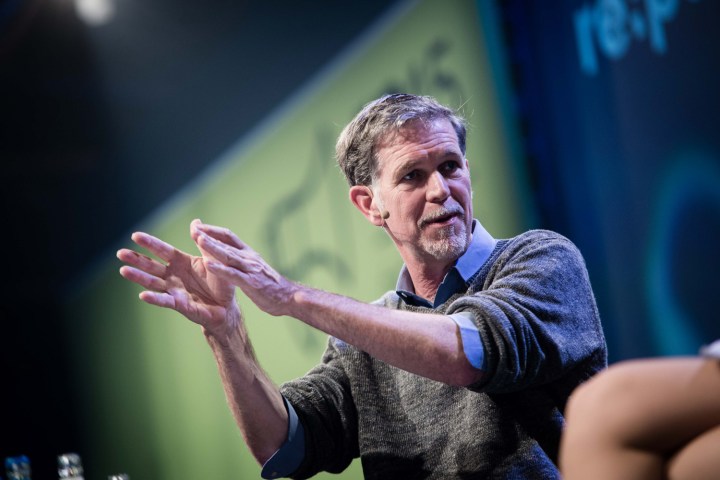
Hastings attributes Netflix’s absence in China to the Chinese government’s lack of approval of the streaming service and its content. He then explained how there are really only two possible outcomes for a company like Netflix when it comes to China. “You could be like Apple, where it’s one of their biggest, most profitable, fastest-growing markets in the world, or like Google, where they’re banned for some number of years,” he said. Google, along with YouTube, has been blocked in China sine late 2012, whereas Apple more than doubled its profits in China from 2014 in 2015.
The State Administration of Press, Publication, Radio, Film, and Television (SARFT) in China regulates all Internet media in the country, and Hastings says Netflix is taking its time building a relationship with the SARFT in order to be a “long-term player in China.” That patience may start to wane, as Netflix has been attempting to get into China on a small scale since May 2015, with Hastings now saying they are only giving a “very modest investment.” This comes after Netflix announced being available in 130 countries at this year’s CES.
Netflix’s ever-expanding library of content seems to be the quicksand on its quest to China. In September 2014, SARFT issued a regulation mandating all TV shows produced outside of China go through a review before being able to be streamed on Chinese websites. In July 2015, SARFT made the The Big Bang Theory the first foreign TV show approved to be streamed on Chinese websites, more than a year after removing it and three other shows from popular Chinese streaming site Sohu. But, the approval was only for the show’s eighth season. If it takes anywhere between 10 months to a year to approve one season, Netflix’s library of millions of hours of content could take years.
Just because China has not approved Netflix streaming in China does not necessarily mean Netflix its content cannot be accessed. A month before SARFT handed out its regulation, the third season of Netflix’s House of Cards was illegally downloaded 681,889 times in China within the first 24 hours. If Netflix wants its entire streaming service operational in the most populous country in the world, a piecemeal effort may be its best bet. Chinese President Xi Jinping seems to be a fan of the service, so that’s a start.
Editors' Recommendations
- These are the apps people use the most on in-flight Wi-Fi
- Roku calls Google an ‘unchecked monopolist’ as ongoing YouTube TV spat rages on
- Apple says cloud gaming apps like Google Stadia violate iOS app store rules
- Leading Dem says Apple, Google, Facebook, and Amazon have ‘monopoly power’
- How to watch the CEOs of Facebook, Google, Amazon, and Apple testify to Congress


